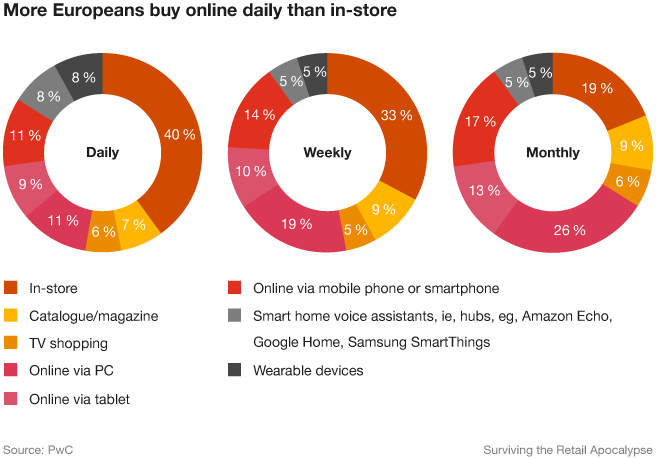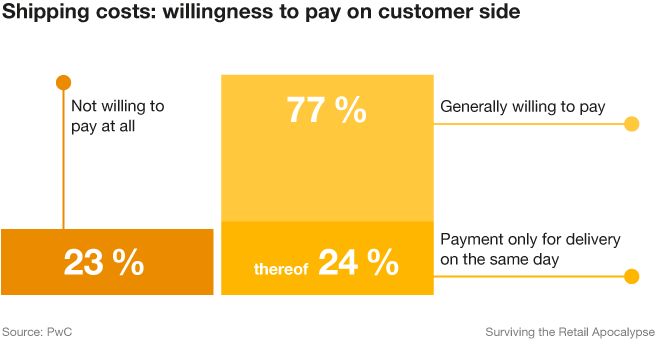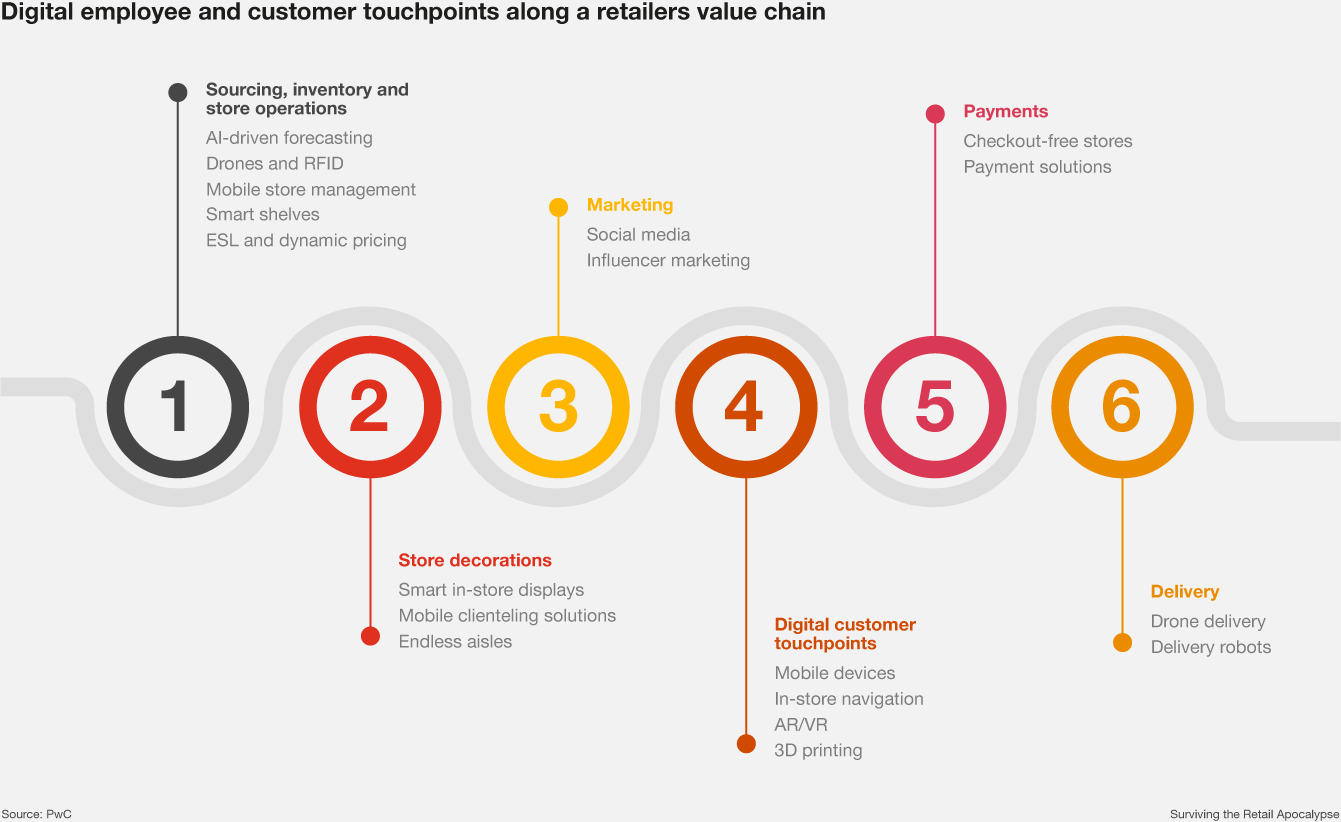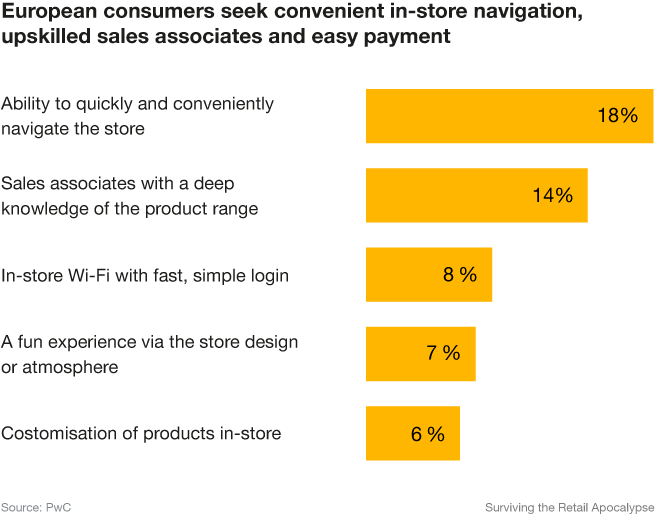
Ask the expert

Dr Christian Wulff
Retail & Consumer Leader at PwC Germany
Tel.: +49 40 6378-1312
Email
Consumers have clear expectations about their shopping, and retail has to fulfil them
German consumers have three priorities that apply to shopping, whether it’s online or at the corner shop: shopping needs to be quick, with prompt delivery, and take account of sustainability criteria. These are the findings from the Global Consumer Insights Survey for which PwC questioned 21,480 consumers in 27 regions worldwide, 1,000 of them German.
„Physical stores will continue to be key to customer loyalty in the retail sector. But they will change into social meeting places and showrooms.“
Summary of study findings
1. Online shopping has been part of everyday life for some time now
41 percent of Germans buy online once a month, 29 percent weekly and 8 percent daily. European consumers say that quick delivery and free returns are the most important features for online delivery. 74 percent think free returns are crucial. 70 percent think getting the product as quickly as possible is important. And the same proportion want to know the exact delivery date at the point of order.

2. Delivery needs to be as fast as possible and free
Most consumers expect free delivery as standard for online retail. Just under a quarter of European consumers (23 percent) are not generally willing to pay for delivery. 42 percent of those who are willing to pay expect the delivery fee to cover same-day or next-day delivery.
„It’s crucial for retailers to create a unique portfolio of services to exploit the opportunities of digitalisation and differentiate themselves from competitors.“

3. Sustainability influences purchasing behaviour
Sustainability issues are increasingly influencing shopping behaviour. For example, German consumers are willing to pay an average €2.34 extra for eco-friendly delivery. Sustainability issues are also a factor in purchasing decisions around product choice: European consumers prefer products with less packaging (41 percent) and avoid plastic wherever possible (42 percent). A third prefer products with environmentally packaging over plastic-wrapped items. The same proportion choose products with a traceable and transparent origin.


4. Physical stores as showrooms and social meeting places
Consumers have changed their attitude to physical stores. While they previously expected a broad product range in stores, they now see stores as places where they can experience products and brands, and access additional services. Consumers expect to be able to navigate the store quickly and conveniently (18 percent) and they expect sales associates to have deep knowledge of the product range (14 percent).

5. Quick and easy payment
Microtrips, defined as visits that take less than five minutes, are increasingly popular. 5 percent of European consumers stated that they make microtrips more than once daily, 18 percent once a day and 30 percent two or three times a week. So it’s important to ensure payment procedures are straightforward. There is also a demand for self-service checkouts, which 60 percent of Germans say they would use, and a display showing the estimated waiting time.

How can retailers meet consumer requirements
Combining new technologies and innovative business models can help retailers meet rising consumer expectations. To offer digital services such as same-day delivery, retailers must have robust and fast IT systems with high-quality data. Without real-time inventory information, for example, retailers cannot state how quickly an order can be fulfilled. Innovative technologies offer retailers the opportunity to keep pace with customers’ constantly rising expectations. The following principles have been found to hold true in practice:










